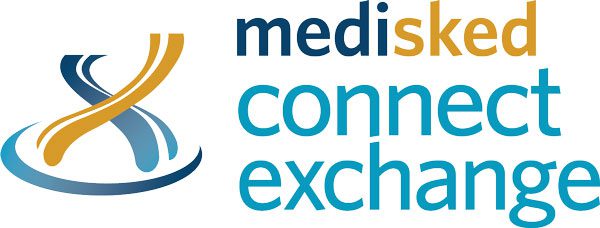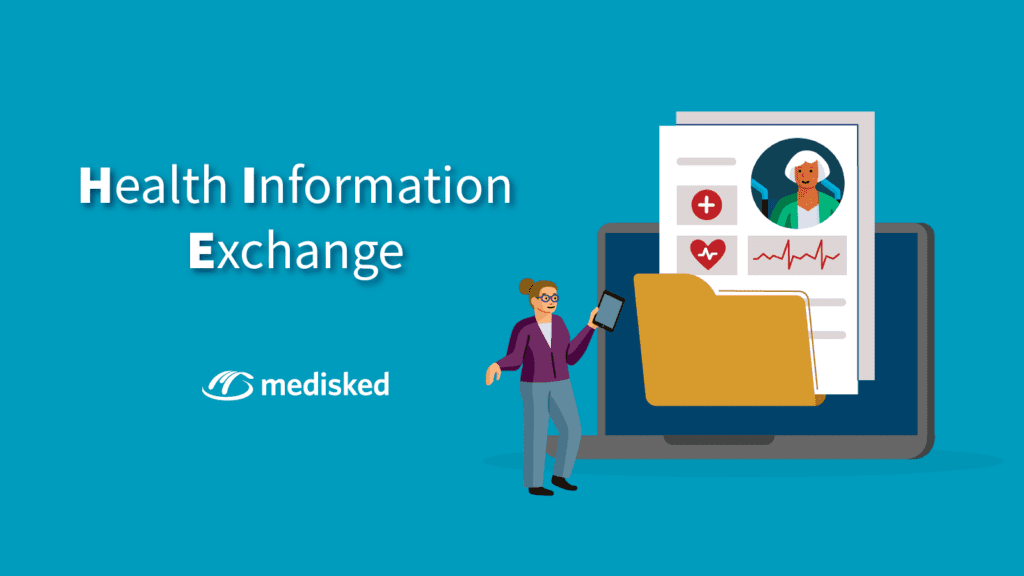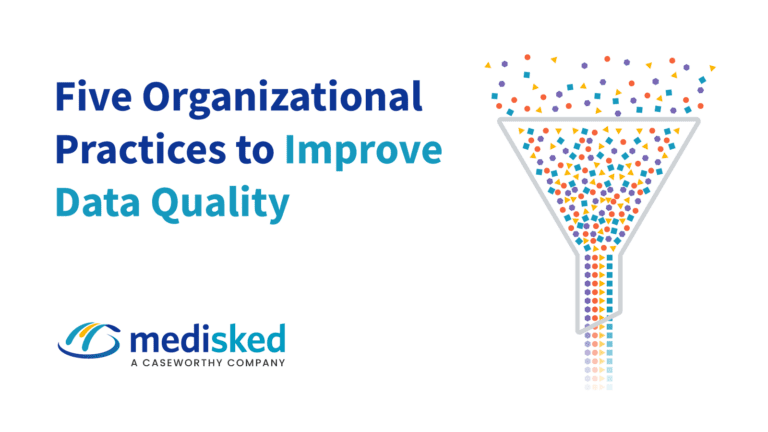Despite the general convenience of secure electronic data transfer, many Americans’ health information is stored on paper—in filing cabinets at medical offices or at home, leaving protected health information (PHI) not so protected. Scary, right? Guaranteeing health data privacy and security throughout the entire data exchange is a known pain point for providers.
But not for long—as a nation, we are revamping how clinicians, laboratories, hospitals, pharmacies, health plans, payers, and patients input health information into systems in a way that is person-centered and value-based. You may have noticed the acronym HIE being thrown around lately and wonder what people are referring to. Health Information Exchange (HIE) is the movement of health care information electronically across organizations within a state, region, community, or hospital system. HIEs are also organizations that facilitate information exchange.
The five key benefits of HIE are:
- Achieving health goals through the exchange of health information
- Improving long-term and post-acute care transitions
- Supporting consumer-mediated information exchange
- Enabling enhanced query for patient care
- Fostering distributed population-level analytics
HIE allows health care stakeholders to correctly access and securely distribute necessary medical information electronically. In turn, this improves the speed, quality, safety, and cost of care.
Here are the three key forms of health information exchange:
- Directed Exchange – the ability to send and receive secure information electronically between care providers to support coordinated care
- Query-based Exchange – the ability for providers to find and/or request information on a patient from other providers, often used for unplanned care
- Consumer Mediated Exchange – the ability for patients to aggregate and control the use of their health information among providers
All three of these forms of HIE improve quality and outcomes while reducing costs in the following ways:
- Improving individual safety by reducing medication and medical errors.
- Increasing efficiency by eliminating unnecessary paperwork and handling.
- Providing circles of support with decision support tools for more effective care and treatment.
- Eliminating redundant or unnecessary testing.
MediSked platforms allow members to track data shared through HIEs with logged consent for data sharing. Our platforms ensure that health data isn’t shared with people or other organizations. The ability to ingest data from HIEs enhances the care team’s role, enabling them to see any important information or potential changes post any hospitalizations or appointments. This aids with compliance as well by eliminating the middle person to alert the care managers.
MediSked has safeguarded claims, data files, and rosters resulting in over $2 billion worth of claims over the past four years alone. HIE is our standard practice!








